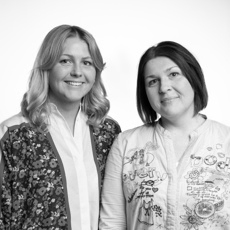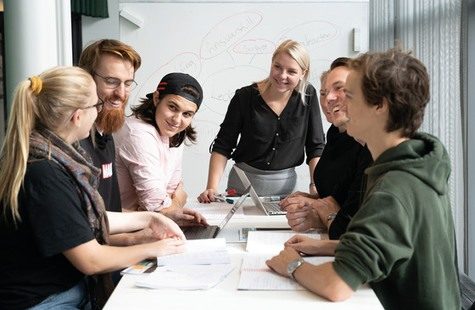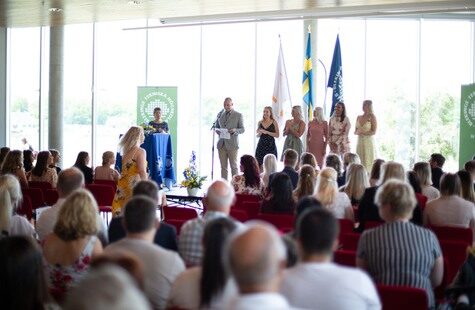Master’s Programme in Software Engineering
60 credits
- Period : 2021-January-18 until 2023-January-15
- Location: Distance
- Type of instruction: Distance learning, mixed-time, half-time
- Application code: BTH-70542
- Language of instruction: English
- Programme syllabus: Download
It is no longer possible to apply to this occasion
Welcome letter (published 3 weeks before start)
Meet future industry requirements with a degree that gives you deeper knowledge in software development – and greater opportunities to take on more responsibility and take on bigger challenges.
The programme is a possibility for software professionals to complete a university degree on distance in software engineering at a 50% pace during four semesters, focusing on a rigorous and data-driven approach to software engineering.
Take the next step – develop and research
The master’s program gives those, who already work with software in some way, the possibility to work as a software engineer, software architect or leader of a development team in a world-leading company. As the program is given on a part-time basis, you can combine work and studies.
Solve tomorrow’s challenges
You gain knowledge in developing software for products and services where high demands are placed on efficiency and quality. You gain competence in cloud work, machine learning, software security, research methodology and how to build and test software products as well as improve modern development processes.
Understand the whole process
The courses included in the programme range from planning with requirements gathering to final implementation, testing and introduction. You get an overall view of the complex process that software development entails. You gain knowledge and experience in both technology and methodology and familiarise yourself with modern development processes and how to improve them.
In order to fulfil requirements regarding work experience, you need to attach an employer certificate (in Swedish or in English) to your application at University admissions. Please find the template certificate here.
Please contact the Admissions Office with any questions regarding the entry requirements.
The programme consists of 60 credits and leads to a Master’s degree.
The tuition fee is SEK 70 000 per semester, one semester corresponds to 30 ECTS credits. EU/EEA citizens are not required to pay fees.
Do you have any questions about the programme? Please send them to us using the form on the International Student Guide.

Programme content
Software engineering
Uncategorized courses
The programme prepares you to develop software that solves future complex challenges where the software works with other new technologies. You learn how to build and test software products, about modern development processes and how to continuously improve them.
The courses in the programme range from early planning with requirements gathering to final implementation, testing and introduction. You gain knowledge and experience in both technology and work methodology. The programme covers requirement engineering, testing, cloud computing, agile software development, machine learning, software security, and research methodology. The education also includes research preparatory courses in case you would like to do research in the field of software engineering.
The programme comprises 60 credits distributed over six courses and a thesis project at the end of the programme. The courses involve both individual and group work where you can work with and learn from other professionals all over the world.
Note! The course list is tentative. See the programme syllabus for an established course list.
Courses spring semester 2021
Product and Requirements Management for Digital Environments, 7,5 hp
Adaptive Lean Software Testing, 7,5 hp
Courses autumn semester 2021
Applied Cloud Computing and Big Data, 7,5 hp
Agile and Lean Development of Software Intensive Products, 7,5 hp
Courses spring semester 2022
Machine Learning Security, 6 hp
Introduction to Security in the Software Development Lifecycle, 6 hp
Research Methods and Master's Thesis (60 credits) in Software Engineering for Professionals, 18 hp
Students who apply for a course or programme, and meet the general and specific entry requirements, compete with one another for available places. When there are more qualified applicants than there are places for an education, the places are distributed through a selection. Read about the selection methods and procedure here.
The study programmes at BTH are continuously monitored and developed through yearly follow-up dialogues, course evaluations after each completed course, and programme evaluations. Results from follow-ups and evaluations can lead to changes in the programmes. These changes are always communicated to the students.
Each educational programme is tied to an advisory board that discusses issues such as the quality of the programme, its development, and relevance for the labour market. In the advisory board, or a committee to the advisory board, teachers, external members, students and alumni are represented.
Being a software professional requires constant learning. This specialization promises to give you deeper insights into the different phases of software development, from requirements definition, through delivery and verification, including crucial knowledge in security and machine learning. Using this knowledge, you should be well set up for your future development as a software professional.
Anders Sundelin, Senior System Architect, Ericsson
Research

BTH is one of the highest ranked universities in the world in the research area applied software engineering. The focus of the work is to develop software that helps companies become more competitive. This Master’s programme is strongly linked to that research.
Do you have questions regarding the program?
You will find a detailed guide to the admission process at universityadmissions.se. If you have questions regarding admission and eligibility please have a look at our admissions website.
Yes, you can find the template here. The document needs to be signed by your employer.
The lecturers are pre-recorded and available for the students to watch in their own pace. There may be some online interactive sessions.
The program is conducted on a 50% pace. You are expected to put approximately 20 hours per week.
No. The program is offered 100% on distance.
Good to know
Look below for information about how to apply, entry requirements and important dates.







